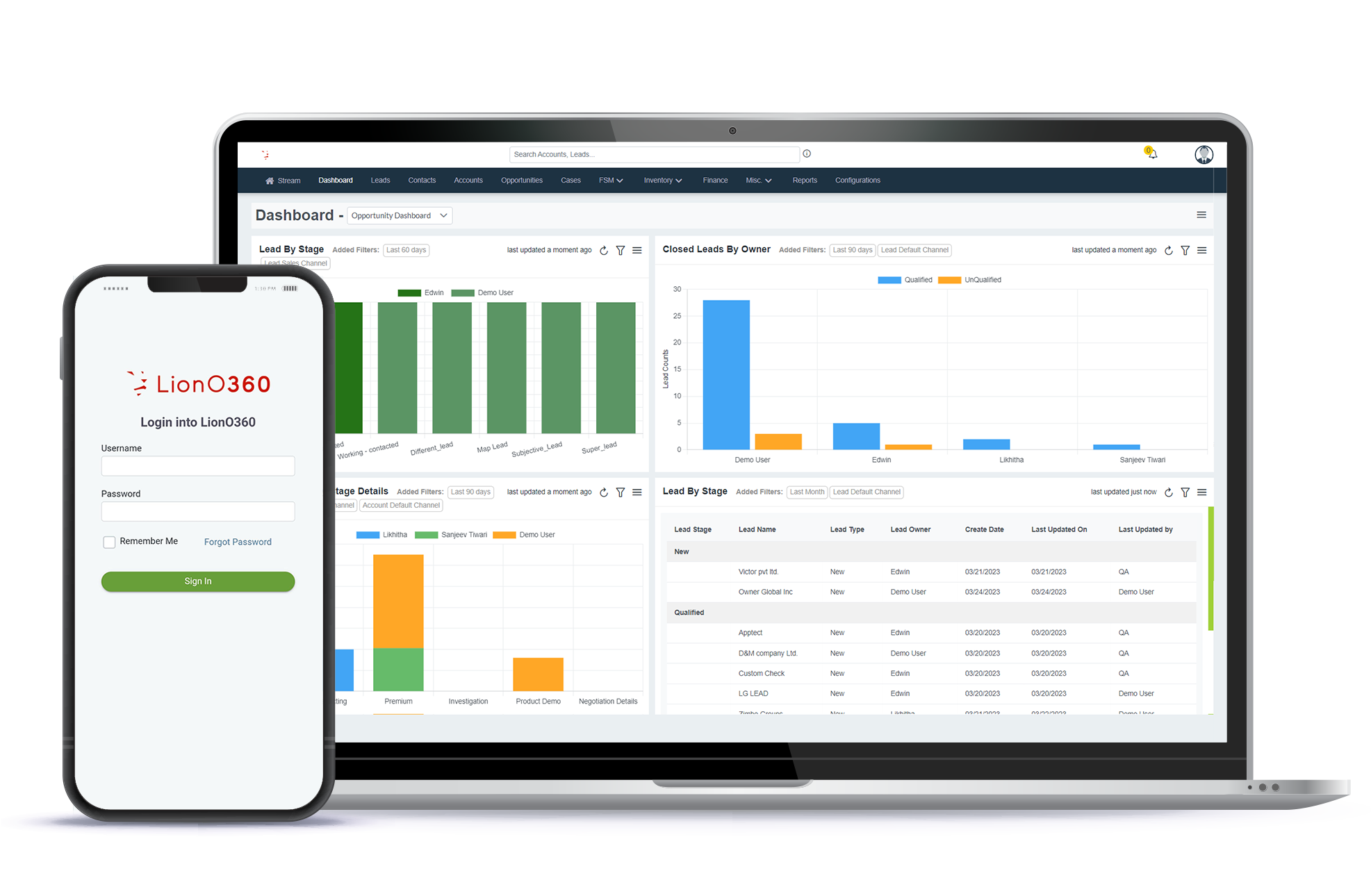
In a world where businesses operate in an increasingly dynamic business landscape fueled by global competition and high customer expectations, the alignment of sales and marketing in today's business climate is paramount. Sales and marketing have traditionally been viewed as two separate departments, each with their own goals, processes and metrics. When sales and marketing operate in silos, businesses leave a lot of value in these two departments. This is where CRM systems come in.
CRM systems are not simply a repository for customer data, they are sophisticated delivery systems that bring sales and marketing together to collaborate. Businesses can use CRM to tie into both sales and marketing, which aligns their activities, streamlines workflows and ultimately provides better customer experiences resulting in growth.
Let’s start discussing the power of CRM in sales and marketing alignment, and how it can transform the way your teams work together.
Centralized Data to Unified Strategy
One of the main problems of sales and marketing alignment is making sure that both teams are operating from the same data. Marketing teams tend to have information on customer interests, behavior, and demographics, and the sales team has information on direct interactions, objections, and special needs. If these two data sets are not aligned, there is a loss of opportunities, there is poor communication, and there are disconnected strategies.
CRM software addresses this issue by providing a single, central location for all customer interactions. With LionO360 CRM, both departments can investigate one common database that contains not just rudimentary contact details but also such useful insights.
Streamlining Lead Management
The key point of sales success is effective lead management. Marketing teams generate leads through various interacting points. With LionO360 CRM’s lead management capabilities ensure that no lead is left behind and that each team is working efficiently toward a shared goal. Let us discuss how it works:
- Lead Scoring: Marketing teams score leads based on engagement and demographics to prioritize qualified leads for sales, improving conversion rates.
- Lead Routing: Once a lead is done, systems can automatically route the lead to the appropriate sales rep, based on factors like geography, industry, or product interest. This automation removes delays and ensures leads are followed properly.
- Lead Nurturing: Marketing teams can use CRM to create automated email drip campaigns or retargeting ads that continue to nurture leads until they’re ready to make a purchase.
Enhanced Communication and Collaboration
Communication is important in any partnership, and sales and marketing are no exception. Historically, these teams work separately, and they may only communicate at milestone points in the customer lifecycle.
Sales can adjust campaigns accordingly depending on this feedback. Marketing can monitor how well certain campaigns are doing by keeping an eye on certain key metrics in the CRM, for example, open rates, click-through rates, and conversion rates. CRM tools offer dashboards that give both sales and marketing teams real-time visibility into key performance metrics, stages in the customer journey, and opportunities.
Most current CRM software includes internal communication features where sales and marketing teams may communicate, exchange files, or discuss certain accounts in real-time. This provides a culture of continuous feedback, collaboration, and common problem-solving. When both sides share common ground on communication and feedback loops, they are able to collaborate and speed up the buyer's process and provide a more unified customer experience.
Improve Customer Experience
CRM plays a key role in this by ensuring that all touchpoints with the customer are personalized, relevant, and timely. By providing customer-centric experiences, CRM helps businesses to build a long-term relationship with customers and that includes:
- Marketing team can use CRM to personalize their conversations as per the customer profiles with the help of their preferences, purchase history, and previous interactions with marketing content.
- CRM makes sure the messaging is in sync and cohesive, providing a smooth experience, whether a customer is first made aware of your brand through a marketing email or conversation.
- Marketing teams are able to access information on existing leads using CRM, which allows them to respond faster and more accurately to inquiries and increase customer satisfaction levels.
After the completion of a sale, sales team have to take initiative to improve their customer relationship by follow-up personal emails, reward schemes, and targeted promotions in an effort to secure customer retention.
Transform Customer Relationships with LionO360 CRM

LionO360 CRM empowers businesses to connect deeper, engage smarter, and deliver exceptional experiences, and turning every interaction into long-term commitment. It offers a unified platform for communication, makes lead management easy, offers meaningful data-driven insights, and ensures that the customer experience is of the highest quality. By disintegrating silos between marketing and sales teams and getting them to work together towards a common objective, CRM enables businesses not only to reach their revenue goals but also create long-term, meaningful relationships with their customers.
With LionO360 CRM, you don’t just manage relationships, but you transform them. Boost satisfaction, increase repeat business, and turn customers into advocates.
Ready to elevate your customer experience? Discover LionO360 CRM and schedule your free CRM demo today!
Call us at +91 9266133544
Frequently Asked Questions
How does CRM improve lead management?
CRM software (example: LionO360) has useful lead management functions including lead scoring, routing, and nurturing. They enable marketing teams to recognize and qualify leads based on engagement to lead, while automating the assignment of leads to the best sales representative. Also, leads can be nurtured by marketing automation until they are ready to buy directly through CRM.
In what ways does CRM enhance communication between sales and marketing?
CRM technology promotes collaboration and coordination between sales and marketing teams through dashboards and performance metrics in real-time. Most CRM systems also include internal communication features that enable the sales and marketing teams to communicate, review and discuss accounts, share information, and provide feedback continuously for a more cohesive and collaborative approach to customer engagement.
How can CRM improve customer experience?
CRM systems improve customer experience by delivering personalized, relevant and timely interactions. Teams in marketing can customize messaging prompted by a customer's profile and past interactions with the business, all in a consistent manner across communications. Similarly, sales teams can provide follow-up with CRM data, improving customer experience and establishing long-term relationships.
What are the key benefits of using a CRM system for sales and marketing alignment?
- Centralized access to customer data for both teams, reducing silos.
- Streamlined lead management processes that maximize conversion rates.
- Enhanced communication and collaboration, leading to quicker and more effective response times.
- Increased growth potential by aligning strategies and objectives across departments.













